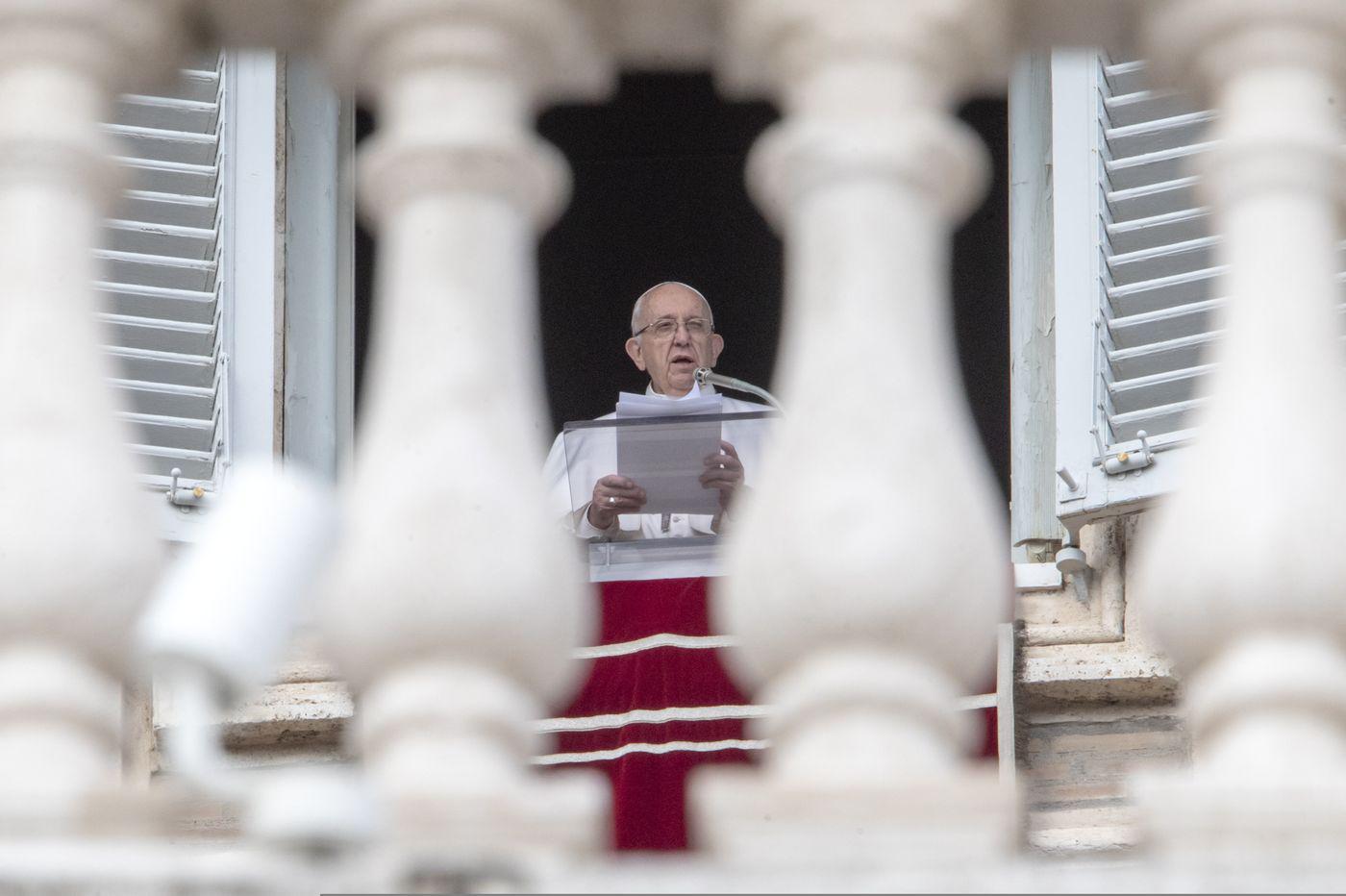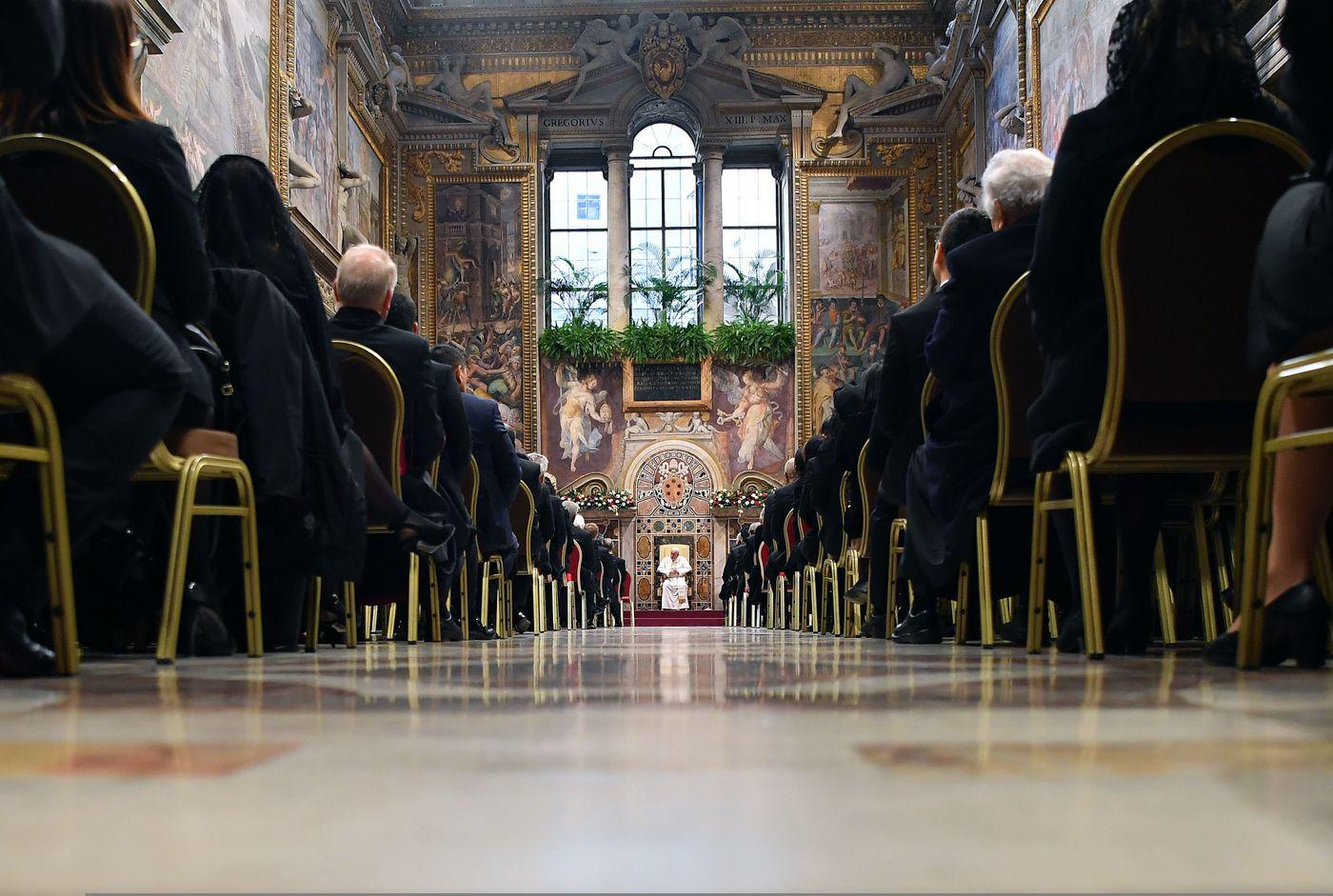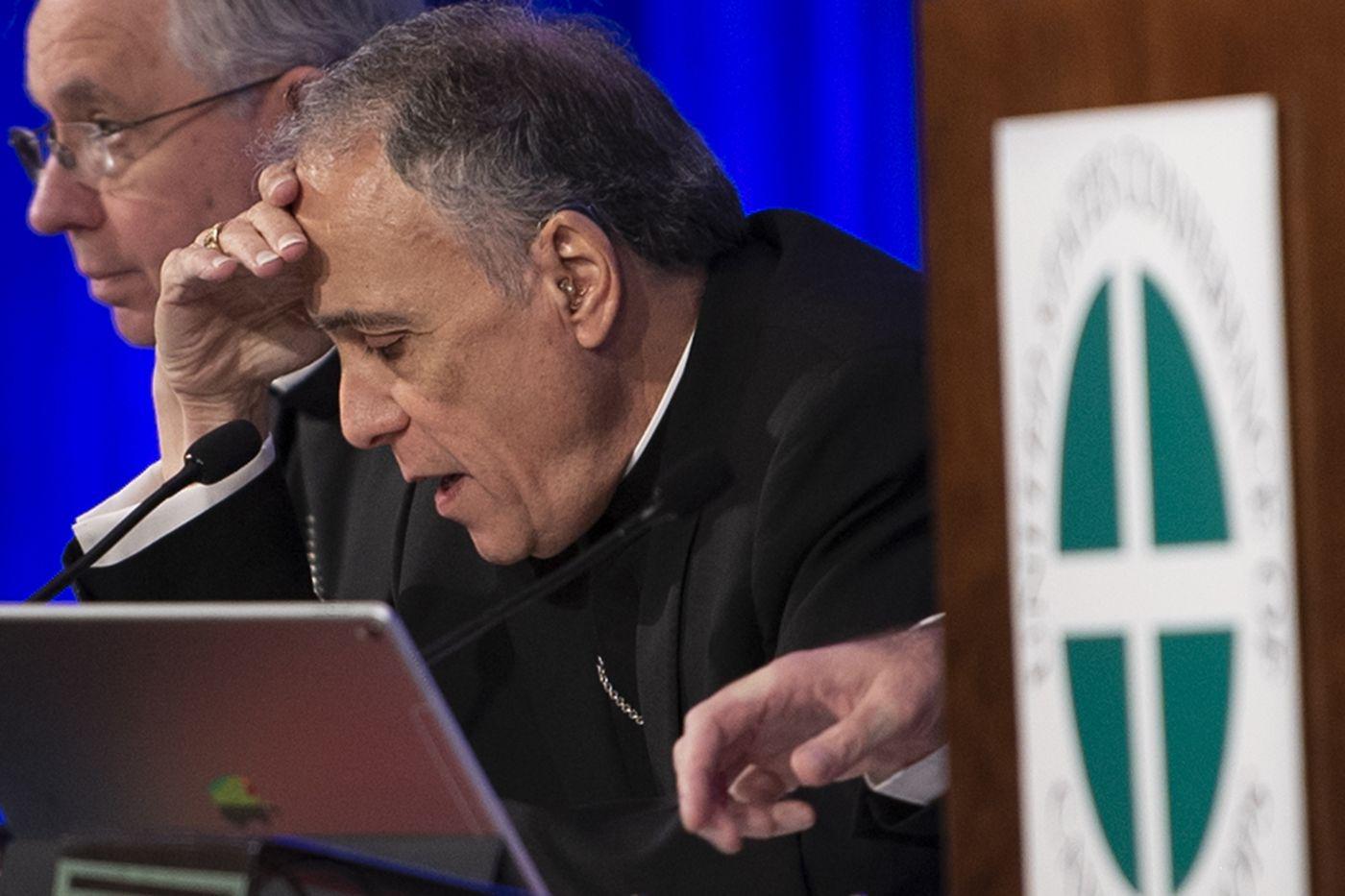|
Expectations high for Pope Francis’ sex-abuse summit, but some brace for disappointment
By Jeremy Roebuck
In what could be a defining moment for his papacy, Pope Francis will welcome more than 100 top Catholic bishops from around the globe to Rome this week for an unprecedented summit aimed at tackling the issue of clergy sex abuse. Never before has a pontiff convened the global church’s leaders to discuss the issue. And after a bruising year that saw high-ranking church officials resign in scandal, fresh investigations, and demands for new laws, the conference that opens Thursday could present an opportunity for Francis to dispel criticism that he has responded sluggishly as the crisis continued to flash across the globe. But should his four-day event fail to deliver, the pope risks cementing the impression among detractors that he remains resistant to meaningful change. Hundreds of reporters and sexual-abuse victims — including some from Pennsylvania — are expected to set up shop outside the Vatican as the prelates gather behind closed doors. “They know that this is a very high-stakes meeting,” said Massimo Faggioli, a theologian and scholar of church history at Villanova University. “The attention here in Rome is already similar to what you’d see for a papal conclave." As if to signal his seriousness, Francis on Saturday took his most meaningful step to date by defrocking Theodore McCarrick, a former cardinal and archbishop of Washington, after the church found him guilty of sexually abusing minors and adult seminarians. Though the Vatican had laicized hundreds of priests for sexual misconduct since the worldwide crisis began nearly two decades ago, McCarrick, who previously served as a bishop in two New Jersey dioceses, is the first cardinal in modern history to be expelled from the priesthood, the most serious penalty the church can impose. Before that significant move, Francis and his aides in recent weeks had sought to temper expectations for the conference itself. Speaking to reporters on a papal flight returning from World Youth Day in Panama last month, the pope suggested that anticipation surrounding the conference had grown well beyond anything the meeting itself could deliver. “Let me say that I’ve perceived expectations that are a little inflated,” he said. “We need to deflate those expectations.” Francis has pledged to attend every day of the confab and described his goals for the meeting as educating bishops on the issues of accountability, responsibility, and transparency, as well as explaining how to properly handle complaints from victims. Late last week, the event’s organizers still had not released a full schedule, although they have urged attendees to meet with victims in their own countries before showing up in Rome. The lone American on the planning team — Cardinal Blase Cupich, the archbishop of Chicago — told the Associated Press on Thursday that he expects the church will have made “significant progress” toward abuse prevention by the end of the week. But neither he nor the rest of the committee has offered any sign that the summit will end with the type of sweeping pronouncements hoped for by some victims and their advocates in the United States. Still, some experts identified key steps the pope could take before the meeting’s conclusion, such as making the U.S. church’s “zero-tolerance” policy for abusive priests the worldwide standard. The Vatican also could instruct all bishops’ conferences to adopt anti-abuse guidelines or to draft protocols for handling claims against prelates who mishandle complaints from victims or are accused of abuse themselves, they said. Those steps are likely to seem underwhelming in the United States, where bishops adopted similar reforms more than a decade ago and still are grappling with demands from the faithful to do more, including strengthening measures to hold themselves accountable. The last year has been particularly bruising for the U.S. hierarchy, starting with McCarrick’s resignation in July as the sexual-misconduct allegations against him first emerged. The Pennsylvania grand jury report followed later, along with the removal of several more prelates amid claims of abuse. Now, some Catholics in the pews say they have more faith in the U.S. Justice Department or the dozen or so state attorneys general who have launched investigations into the church’s handling of sex-abuse claims than they do any promises from church leaders that they can police themselves. “Many U.S. Catholics feel a sense of urgency and that this is a real crisis,” said Kathleen Sprows Cummings, a University of Notre Dame historian who runs its center for the study of American Catholicism. “But the Vatican is an incredibly inefficient and cumbersome bureaucracy that’s inflexible and doesn’t change easily. For Rome, this is urgency.” Bishops in the United States had hoped to vote on a more stringent series of reforms at a meeting last fall, including a new code of conduct for prelates and a proposed review board that would give Catholic laity a role in investigating the church hierarchy. But the Vatican stayed their hand, raising concerns that the latter measure, in particular, did not conform with canon law. At the time, Cardinal Daniel DiNardo, archbishop of Houston and president of the U.S. Conference of Catholic Bishops, assured a hotel ballroom packed with frustrated prelates that Francis hoped to outline a more global solution to the crisis at February’s summit. He, along with Cupich, will represent the United States at the Vatican this week. Cardinal Sean O’Malley, archbishop of Boston and a member of Francis’ Pontifical Council for the Protection of Minors, has said he also plans to attend. The worst outcome for all three — said Terry McKiernan, cofounder of the watchdog website Bishop-Accountability.org — would be to return from Rome empty-handed. “That would be bad for everyone," he said. "They need a win, and that’s hard to do when your boss in Rome isn’t getting anything done.” Part of the reason the Vatican has struggled to define a universal approach to the crisis is that there is little agreement about the extent or the root causes of the problem. In the United States, some conservative bishops have claimed that a cabal of homosexuals within the church hierarchy is to blame, throwing around terms like the Lavender Mafia. Meanwhile, some prelates in the developing world dismiss the issue as only a problem for the West. Philadelphia Archbishop Charles J. Chaput has said he struggled to engage his counterparts from Africa and Asia in serious discussions on clergy sex abuse while he represented the United States at a Vatican assembly in October. ”There was little appetite among the majority of people to spend much time talking about it,” he said at a conference in Baltimore last fall. “People in some parts of the world say it’s not an issue for them.” As a result, despite the recent scandals, the hierarchy here is miles ahead of the rest of the world, said Faggioli, the Villanova professor. Bishops in Italy, for example, only began adopting a nationwide policy for handling clergy sex-abuse claims within the last year. “This crisis opens a window on how complicated global Catholicism actually is," Faggioli said. No matter what emerges — or doesn’t — from the summit this week, Jim VanSickle felt compelled to be there. It has been a whirlwind year for the Pittsburgh-area resident, who last year broke his silence about his abuse at the hands of an Erie priest in the 1970s. He went on to testify before the Pennsylvania grand jury and since has become an outspoken advocate for clergy abuse victims in the state. He’s headed to Rome along with other Pennsylvanians and abuse survivors — including State Rep. Mark Rozzi (D., Berks) and former State Rep. Bill Wachob (D., Elk). While there, VanSickle said, he hopes to persuade officials at the Vatican or U.S. bishops to meet with him. “As a young Catholic boy raised in Erie, I never thought my first trip to Rome would be to talk about being abused by a priest,” he said. “But I want them to know who I am and that I’m going to be relentless.” Contact: jroebuck@phillynews.com
|
.
Any original material on these pages is copyright © BishopAccountability.org 2004. Reproduce freely with attribution.


